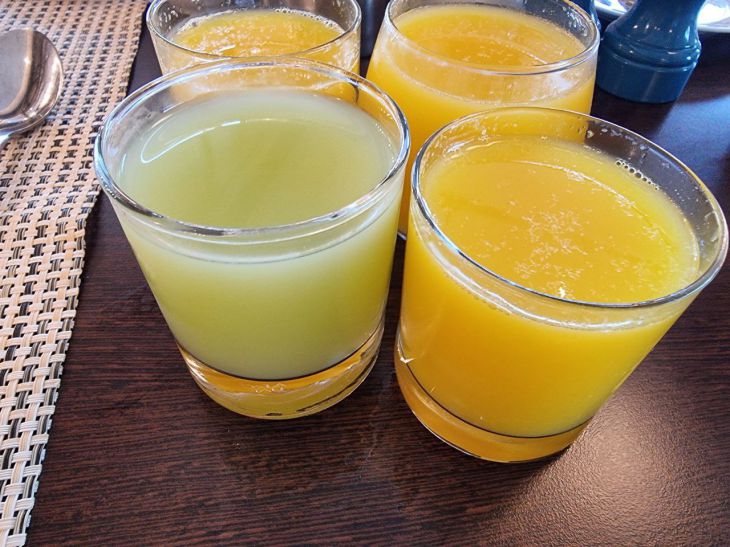Juice is a popular nutritious drink.
It is rich in vitamins and other useful substances. But the ignorance of many people about the composition and properties of juice gives rise to myths that are actively spreading in various corners of the world.
Juices are healthier than whole fruits and vegetables
Truth: The drink is not a substitute for natural products. Fruits and vegetables contain a large amount of valuable dietary fiber, which is lost when juicing.
In addition, fresh fruit does not provoke a powerful release of insulin, which guarantees long-lasting satiety.
Juices in cans are better than in bags
Truth: Packaged juices retain beneficial and nutritious substances that instantly disappear under external influence in glass jars.

Juices help you lose weight
Truth: The drinks contain a lot of sugar and are a high-calorie product. Drinking juices regularly can only make you gain weight, but not lose weight.
Drinking juice in the morning on an empty stomach is beneficial
Truth: The drink contains amino acids that irritate the stomach lining. Such a breakfast immediately leads to ulcers, gastritis and other serious diseases.
It is recommended to greet a new day with a cup of warm water, and drink juices only after a hearty breakfast, lunch or dinner.
Juice is good for everyone without exception
Truth: There are a number of contraindications to drinking juices made from fruits or vegetables:
Pomegranate juice is contraindicated for gastritis with high acidity, pancreatitis and ulcers.
Juices from apples, lemons and oranges are also contraindicated for gastric ulcers.
Abnormal heart rhythms can be caused by drinking grapefruit juice.
Green drinks should not be consumed by people taking anticoagulants.
Any juices should not be consumed if you have diabetes, obesity, caries, allergies and other diseases.
Freshly squeezed juice brings only benefits
Truth: Although these juices are indeed the healthiest of all the drinks available, their benefits are not that great.
The fact is that almost all the nutrients are contained in the peel of the fruit, which does not get into the juice.
Only a small part of vitamins is present in the drink, so such juice cannot be called nutritious and useful for the body.








